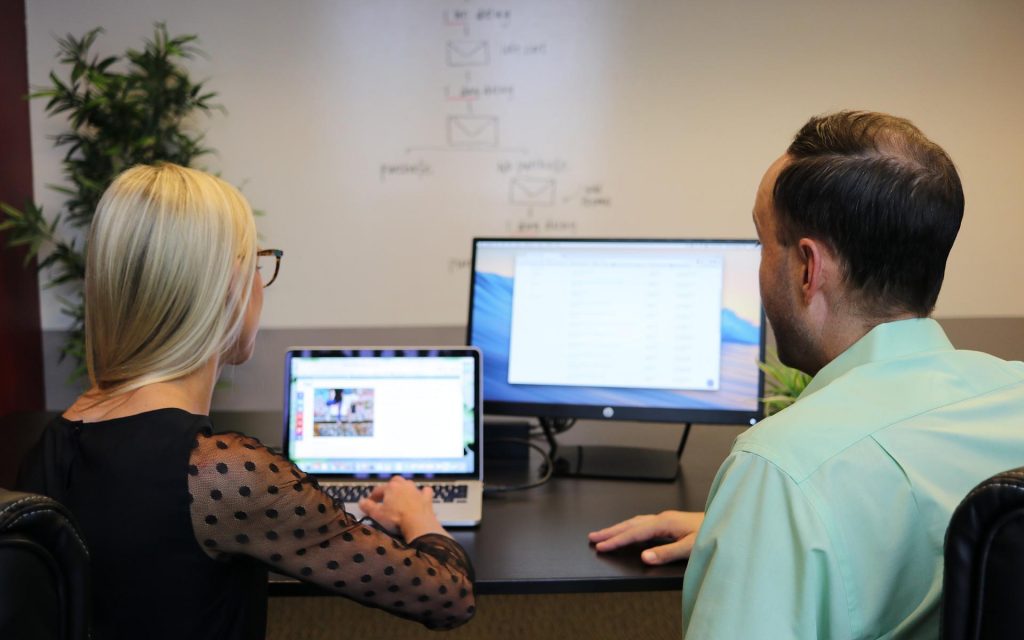 Subscribers Only
People
Subscribers Only
People 
The best way to reach the people at risk of being left behind is to work with the organisations and communities that directly support them says Cadi Cliff and Mohammed Basit of Cwmpas
The Covid-19 pandemic put a spotlight on the digital divide in Wales, and we saw individuals and communities at risk of being left behind as society pivoted in response it. People began to work from home, studying shifted online, online food deliveries became the norm for many, virtual consultations increased and waving to friends and family via our screens became normalised.
In Wales, 7% of adults are currently not online, and we know this increases for people with disabilities or long-term health conditions, as well as older people. As the way in which we lived and worked shifted, various other communities were also at greater risk of being left behind when it came to digital inclusion and accessibility. This included communities from ethnic minority backgrounds.
At Cwmpas, we have been championing digital inclusion in Wales for over 15 years with the aim of providing people with the digital skills and confidence to feel more included and to take more control of their own lives. We deliver the Welsh Government’s funded digital inclusion programme – Digital Communities Wales: Digital Confidence, Health and Well-being (DCW) – in partnership with The Good Things Foundation and Swansea University. We work alongside communities in Wales on the issues that matter to them. By doing so we want to change the way that society works, so that people and communities no longer feel left behind.
During the pandemic, we had been hearing anecdotal feedback from various organisations who support ethnic minority communities in Wales, about their community members being left behind in the digital response to Covid-19.
We wanted to take an evidence-based and community-led approach to this, so we took some time, working with Social Change UK, to unpack what we’d been hearing. Through conversations with organisations and individuals, Social Change explored what the barriers to digital inclusion were for ethnic minority communities, and what DCW could do about that as a programme supporting communities and organisations across Wales. Findings and recommendations from this supported DCW to deliver a project called ‘Digitally Connected Communities.’
We know that the best way to reach the people at risk of being left behind is to work with the organisations and communities that directly support them, so free training and support were on offer for seven organisations taking part in the project. It was an opportunity for staff to improve their digital skills, while helping others to build their own. The project lasted six months and covered a range of topics that help to break down barriers and get communities online. In between monthly training sessions, DCW hosted collaborative forums. This platform allowed organisations to connect with each other, to share triumphs, signpost to useful services, strengthen collective knowledge, and build a strong support network for digitally excluded communities.
We believe the knowledge and skills gained through accessing training and resources will be beneficial for the representatives from those organisations involved to carry their daily work, but also to share with colleagues and benefitting the wider communities which they are engaging with. Due to the nature of the communities they all support and work with, having a platform to share experiences, best practise for overcoming specific barriers and network with other organisations who support diverse range of communities in Wales was and is hugely important.
The project enabled DCW to learn more about the participating organisations and the communities they support. It also allowed us to build positive relationships with these organisations so that we can continue to support them into the future as they work to ensure their communities thrive in an increasingly digital world.
If we want a Wales where people engage in a modern digital society we have to work with the organisations and communities that they interact with, listen to their needs and then start with the basic pillars of digital access, skills and confidence to ensure no one is left behind.


